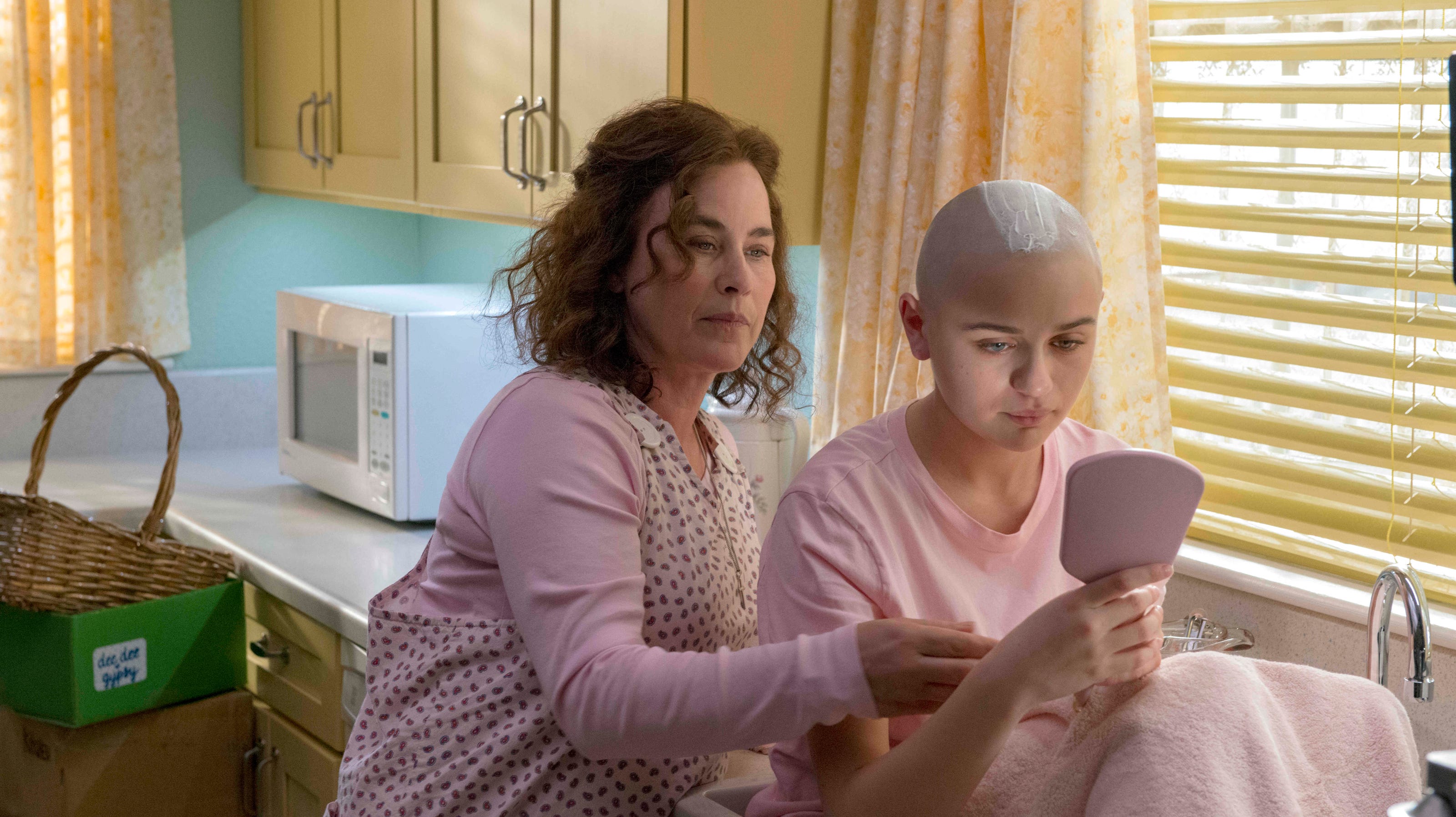The Gypsy Rose crime story has captured international attention, unraveling a tale of deception, manipulation, and betrayal that shook the foundations of family trust. This sensational case highlights how a young woman, Gypsy Rose Blanchard, orchestrated an elaborate scheme to fake a lifetime of illnesses alongside her mother. The story is not only shocking but also serves as a cautionary tale about the complexities of familial relationships and the lengths people may go to escape oppressive environments.
The case gained widespread media coverage when the truth came to light in 2015. Gypsy Rose's life, once portrayed as a tragic narrative of chronic illness, turned out to be a meticulously constructed lie. Her mother, Dee Dee Blanchard, played a central role in perpetuating this deception, controlling every aspect of Gypsy's life. However, the tables turned dramatically when Gypsy decided to fight back, leading to a chilling chain of events.
This article delves into the details of the Gypsy Rose crime story, exploring the psychological dynamics, legal implications, and societal impact of this case. By examining the events leading up to the crime and its aftermath, we aim to provide a comprehensive understanding of this harrowing story while highlighting the importance of truth and transparency in human relationships.
Read also:Why Did The Cia Kill Kennedy Unveiling The Conspiracy Theories And Historical Facts
Table of Contents
- Biography of Gypsy Rose Blanchard
- Early Life and Illnesses
- The Deception Unveiled
- Motivations Behind the Lies
- The Legal Case and Trial
- Psychological Aspects
- Impact on Media and Society
- Lessons Learned from the Case
- Conclusion
- References
Biography of Gypsy Rose Blanchard
Gypsy's Early Years
Gypsy Rose Blanchard was born on February 20, 1995, in Springfield, Missouri. From a young age, Gypsy was diagnosed with a series of chronic illnesses, including muscular dystrophy, leukemia, and several other conditions. Her mother, Dee Dee Blanchard, became her primary caregiver, controlling every aspect of Gypsy's life. This section explores her upbringing and the initial signs of manipulation that set the stage for the eventual crime.
Biodata of Gypsy Rose Blanchard
| Full Name | Gypsy Rose Blanchard |
|---|---|
| Date of Birth | February 20, 1995 |
| Place of Birth | Springfield, Missouri |
| Known For | Faking chronic illnesses and the murder of her mother |
| Current Status | Serving a 10-year prison sentence |
Early Life and Illnesses
Gypsy's early life was marked by a series of alleged medical conditions that confined her to a wheelchair and required constant medical attention. Dee Dee Blanchard ensured that Gypsy remained isolated from the outside world, reinforcing her image as a sick child in need of protection. However, evidence later revealed that many of these illnesses were fabricated, raising questions about the true nature of their relationship.
The Deception Unveiled
The Gypsy Rose crime story began to unravel in 2015 when authorities discovered that Gypsy's illnesses were not real. Investigations revealed that Dee Dee had manipulated doctors, nurses, and the community into believing that Gypsy was severely ill. This deception extended to Gypsy herself, who was kept in the dark about her true health status for years.
Key Evidence
- Medical records showing inconsistencies in Gypsy's diagnoses.
- Testimonies from healthcare professionals questioning Dee Dee's credibility.
- Surveillance footage of Gypsy walking without assistance.
Motivations Behind the Lies
Understanding the motivations behind the Gypsy Rose crime story requires examining the psychological dynamics between mother and daughter. Dee Dee's actions were driven by a desire for attention and control, while Gypsy's participation in the crime stemmed from her desire to escape an oppressive environment. This section explores the factors that led to the tragic outcome.
Psychological Munchausen by Proxy
Dee Dee's behavior aligns with the characteristics of Munchausen by Proxy, a condition where caregivers fabricate or induce illnesses in those under their care. This syndrome explains her relentless pursuit of medical attention for Gypsy and her manipulation of the healthcare system.
The Legal Case and Trial
In 2015, Gypsy Rose Blanchard and her boyfriend, Nicholas Godejohn, were charged with the murder of Dee Dee Blanchard. The trial shed light on the complexities of the case, revealing the extent of the deception and the psychological toll it took on both parties. Gypsy was sentenced to 10 years in prison, while Godejohn received a longer sentence due to his role in the crime.
Read also:Joanne Whalley Height A Comprehensive Look At Her Career And Personal Life
Legal Implications
- Gypsy's conviction for second-degree murder.
- Godejohn's role as the primary perpetrator in the murder.
- Public reaction to the sentencing and its fairness.
Psychological Aspects
The Gypsy Rose crime story offers valuable insights into the psychological underpinnings of manipulation and abuse. It highlights the impact of toxic relationships and the lengths individuals may go to regain control over their lives. This section examines the psychological profiles of both Gypsy and Dee Dee, shedding light on their motivations and behaviors.
Gypsy's Psychological Journey
Gypsy's decision to participate in the crime was influenced by years of emotional and psychological abuse. Her desire for independence and freedom from her mother's control drove her to take drastic measures. Psychological evaluations conducted during the trial revealed the depth of her trauma and the challenges she faced in breaking free from her oppressive environment.
Impact on Media and Society
The Gypsy Rose crime story became a media sensation, capturing the attention of audiences worldwide. Documentaries, books, and even a Netflix series were produced to explore the case further. This section examines the media's role in shaping public perception and the broader societal implications of the story.
Societal Reflections
The case raises important questions about trust, truth, and the boundaries of parental authority. It challenges societal norms regarding family dynamics and encourages discussions about mental health and abuse. By examining the media's portrayal of the story, we gain a deeper understanding of its impact on public consciousness.
Lessons Learned from the Case
The Gypsy Rose crime story serves as a powerful reminder of the dangers of manipulation and the importance of seeking help in abusive situations. It underscores the need for increased awareness of Munchausen by Proxy and other forms of psychological abuse. This section highlights key takeaways from the case and offers guidance for those facing similar challenges.
Preventing Future Cases
- Encouraging open communication within families.
- Providing resources for victims of abuse.
- Raising awareness about psychological conditions like Munchausen by Proxy.
Conclusion
The Gypsy Rose crime story is a harrowing tale of deception, manipulation, and the lengths individuals may go to reclaim their lives. By examining the events leading up to the crime and its aftermath, we gain valuable insights into the complexities of human relationships and the importance of truth. As we reflect on this case, let us remember the lessons it teaches and strive to create a world where trust and transparency prevail.
We invite you to share your thoughts on this article and explore other content on our website. Together, we can continue the conversation about important issues affecting our society today.
References
- Netflix Documentary: "The Act"
- Medical Literature on Munchausen by Proxy
- Legal Documents and Court Records
- Psychological Studies on Family Dynamics


